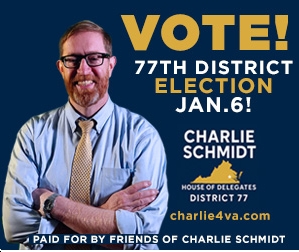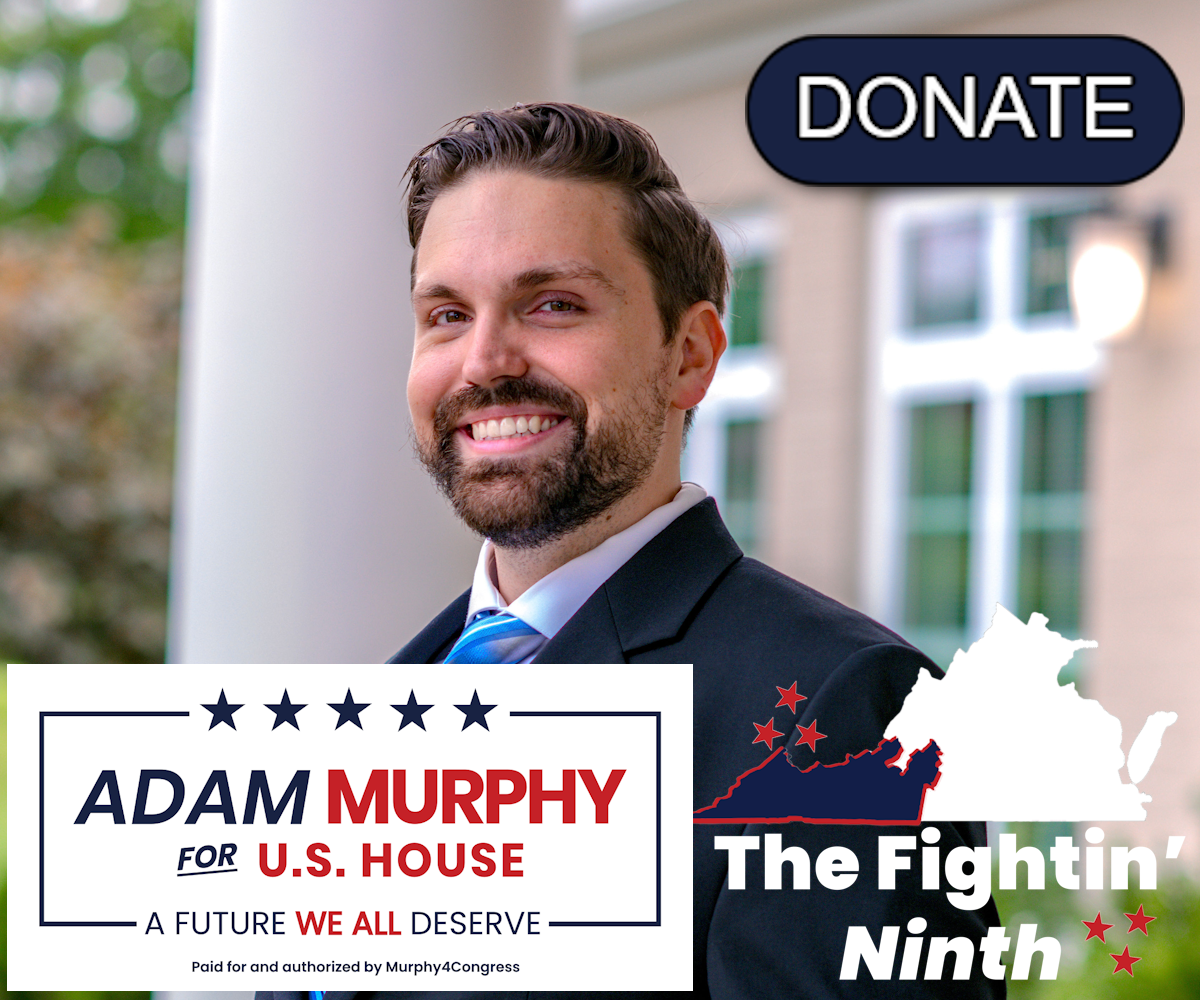by Cindy
Every time the quarterly campaign finance reports are released, it reminds me how desperately we need comprehensive campaign finance reform. The piles and piles of money spent are just obscene. And while some candidates seem to have too many corporate donors, others have giant individual donors, others have perhaps too many out-of-state donors, and some are just wealthy enough to fund their own campaigns out of pocket. Each campaign taps into whatever unique source of funds they have access to. And sadly, the campaigns with clean financial statements filled with only small-dollar, ordinary donors, are the ones who raised too little to be considered “competitive” in their races.
Every year in the General Assembly, we see a bill or two aimed at putting limits on corporate contributions (or on contributions from some particular subset of corporations, like public service ones). And there are certainly plenty of corporate contributions in the first quarter reports. Broadly, there are in particular lots of contributions to the top candidates from real estate developers, high tech industry companies, and (renewable) energy companies.
That includes:
- A $150,000 contribution to the McAuliffe gubernatorial campaign from computer services company Instos Inc., $100,000 from Sungate Real Estate, and $50,000 from CloudHQ.
- Attorney General candidate Jay Jones received $5,000 each from two gaming companies, POM of Virginia LLC and Curo Group LLC.
- GOP gubernatorial candidate Glenn Youngkin reported a $25,000 contribution from Hilldrup Companies, a NoVA moving and logistics company.
- GOP Attorney General candidate Leslie Haley received $15,000 from Richmond developer Railey Hill Associates.
Many candidates have eschewed corporate contributions. But the most competitive ones have done so by instead receiving enormous contributions from “individuals” (I put that in quotation marks because many individual donors are CEOs or other top executives of corporations, but simply donate through their personal accounts rather than their corporate accounts).
- GOP gubernatorial candidate Pete Snyder reported a $1 million donation from Mark Kimsey, a financial analyst and the son of the founder of AOL.
- Hedge-fund multi-millionaire Michael Bills continued what looks like a soft coup of the Virginia government, with a $750,000 contribution to Democratic gubernatorial candidate Jennifer Carroll Foy and a $150,000 contribution to Jay Jones, both through his PAC, Clean Virginia; while his wife Sonjia Smith added another $250,000 to Foy’s coffers.
- Terry McAuliffe took in $100,000 from James Bernard Jr, who runs a private equity company that’s been buying up renewable energy-related companies, as well as $100,000 from James Whitcomb, who’s the CDO of Parallel, “one of the largest privately-held, vertically-integrated, multi-state cannabis companies in the world.”
- Democratic gubernatorial candidate Jennifer McClellan’s largest donation is $100,000 from management consultant Julie Barron Morrill.
- LG candidate Sam Rasoul has received $60,000 from CAIR secretary and President and CEO of Fakhoury Leadership International, Manal Fakhoury, and $95,000 in total from what appears to be her whole family.
- The late Dominion CEO Tom Farrell gave GOP Attorney General candidate Jason Miyares $5,000, and Virginia Redistricting Commission citizen member Marvin Gilliam gave him $5,000, with $15,000 in total from the entire Gilliam family.
- Attorney General Mark Herring received $75,000 from Ronald Abramson.
But at least we have transparency, right? So we know all about who’s donating to whom and we can be on the lookout for undue political influence, right? Um, not really. Because we have all sorts of LLCs and shell corporations contributing to candidates, and I had to dig pretty far to even guess who’s behind that money. On top of that, there are Virginia-registered PACs, which just require a bit of tracing backwards through VPAP reports to figure out the original source of money; and then the federally-registered PACs and Super PACs, where there might or might not be information on the donors.
Among the shell corporation contributions:
- The McAuliffe campaign received $100,000 from Hillsboro 56 LLC, which seems to be a real estate LLC perhaps affiliated with a Michael Moskowitz.
- The Youngkin campaign received $25,000 from Route 231 LLC, involved in this shady (?) deal.
- Jennifer McClellan received $10,000 from Leading Energy Solutions, which seems to be a Florida-based shell corporation affiliated with Lloyd Moore.
- GOP LG candidate Tim Hugo received $10,000 from Goshen Ventures LLC. His report lists a DC address, but I couldn’t find any record of any such entity at that address, although there are several other corporations with this name registered in other states, that are involved in some kind of mining/mineral rights.
PAC contributions:
- GOP LG candidate Winsome Sears received a $3,672 in-kind donation from federal Super-PAC Black Americans to Re-Elect the President, and $7500 from a federal Black Americans PAC (BAMPAC).
- Jennifer Carroll Foy received $175,000 from the Defeat Republicans PAC, a federal PAC purportedly created in 2019 to defeat Republicans in Congressional seats. It raised just over $500k in 2019-2020, but contributed only $35k of this to Democrats running for Congress in the same period. After spending $315k of administrative expenses, the PAC just contributed the rest of its funds to Foy, even though she’s not (yet) running to defeat a Republican.
It’s also perfectly legal in Virginia to raise money for one race, say a Delegate race, and then just transfer it over to another race, like Lieutenant Governor. And back again if you drop out or lose!
- LG candidate Hala Ayala cleaned out her Delegate account, transferring the $9,000 to her LG account.
- LG candidate Mark Levine moved $15,000 from his Delegate account.
- Gubernatorial candidate Kirk Cox moved a whopping $300,000 from his Delegate account.
- LG candidate Tim Hugo moved $92,000 from his defunct Delegate account (he lost in 2019).
Finally, if we do ever manage to limit corporate and individual donations, the one thing we still won’t be able to prevent is candidates using their own personal wealth to finance their campaigns. (Ironically, speaking of that, Ross Perot Jr. donated $10,000 to Kirk Cox’s campaign!)
- GOP candidates Pete Snyder and Glenn Youngkin each loaned themselves over $5 million.
- GOP LG candidate Glenn Davis loaned himself almost $90,000.
- LG candidate Mark Levine loaned himself $350,000 and received $50,000 in donations from his family.
- LG candidate Andria McClellan received $100,000 from her husband.
- LG candidate Xavier Warren donated $45,000 to his campaign from his own DC lobbying company, Congressional Partners.
So, another quarter is in the books. Another reminder that comprehensive campaign finance reform is a must. There won’t be a simple solution like stopping the flow from just one source, because it’s like a Lernaean Hydra—for every one head of the serpent you chop off, two more grow in its place. A 2021 session resolution from Delegate David Bulova called for a Joint House/Senate subcommittee to study comprehensive campaign finance reform, and to make recommendations to the General Assembly. We’ll see what they come up with.













![[UPDATE: Garrett McGuire Wins] Results: HD17 Dem “Firehouse Primary” to Nominate a Replacement for Del. Mark Sickles, Who’s Headed Into the Spanberger Administration](https://bluevirginia.us/wp-content/uploads/2025/12/hd17finalb-100x75.jpg)

